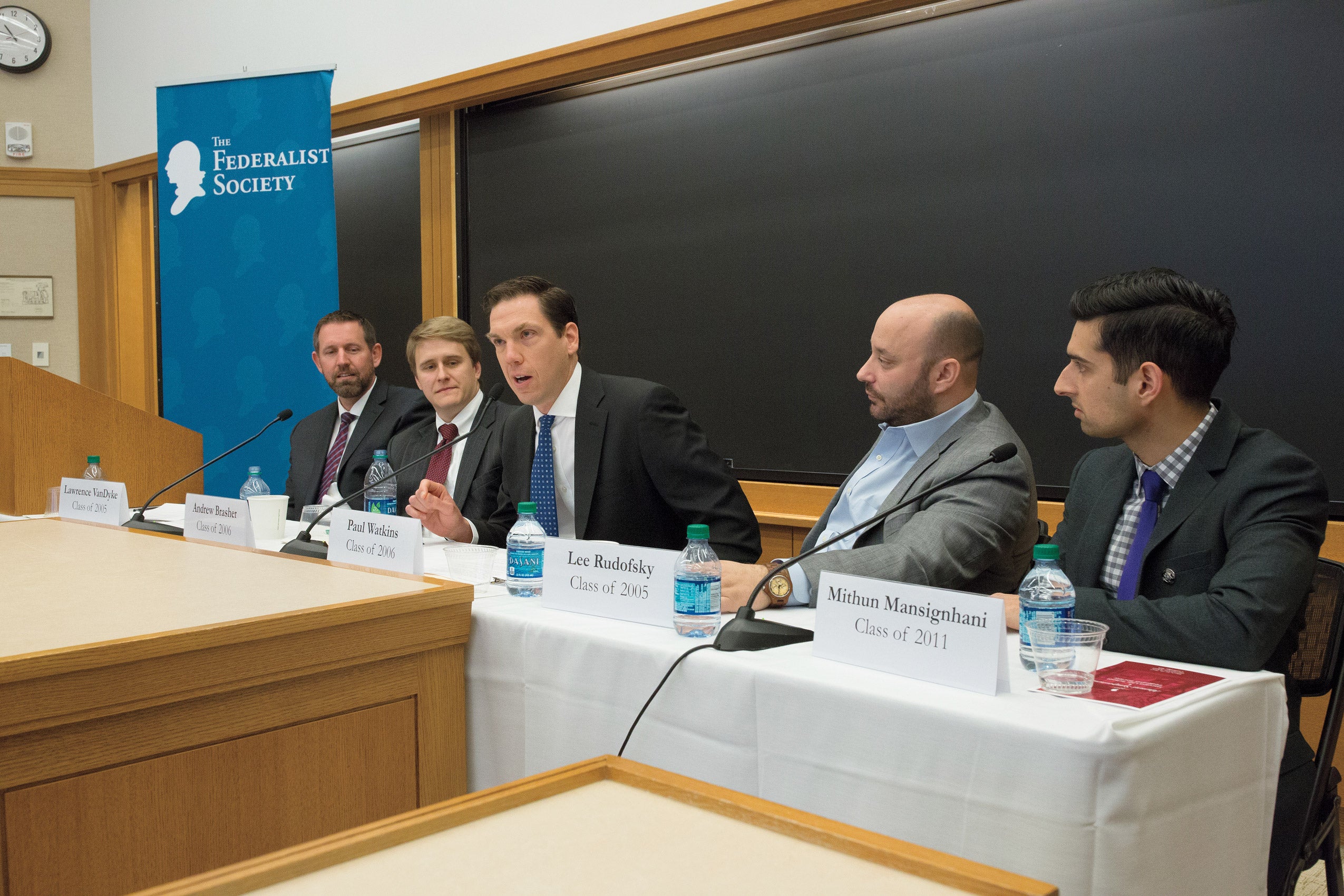In March, the Harvard Federalist Society, an organization of conservatives and libertarians espousing individual freedom, limited government, and judicial restraint, held its first alumni symposium on campus.
Attended by more than 70 alumni and students, the symposium featured a talk by Don Willett, a justice on the Supreme Court of Texas, and prerecorded remarks from Sen. Ted Cruz ’95. There were also panels: on state solicitors general, including alumni now in that role; national security, with alumni experts from government and the private sector; and law schools and bar, with Judge Laurence Silberman ’61, U.S. Court of Appeals, D.C. Circuit, and Judge Reena Raggi ’76, U.S. Court of Appeals, 2nd Circuit (see the Harvard Law Bulletin profile of Raggi).
In another session, Dean Martha Minow held a wide-ranging conversation with event co-organizer Megan Brown ’02, a partner at Wiley Rein. “No organization has had a more positive and constructive impact on the Harvard Law campus than the Federalist Society,” Minow said. Responding to a question about a potential chilling effect on intellectual debate on campus, Minow said that faculty encourage debate across the political spectrum but the rise of social media has caused many students to worry that if they express unpopular opinions, what they say will become public and that will hurt their careers. She added that she has been engaged in recruiting conservative and libertarian faculty to bring greater ideological diversity to the classroom.
In an interview, Brown said she and other alumni are concerned that the law school environment is not always conducive to airing different perspectives on important issues. One of the benefits of the Federalist Society, she said, is that it offers “real intellectual diversity about different judicial philosophies and the idea that there’s not a monopoly on the right way to think about the law. They do such a good job of bringing debates and speakers to campus who wouldn’t otherwise be here.”
Indeed, Trenton Van Oss ’17, president of the Harvard Federalist Society this year, noted that even within the organization, members have diverse points of view, particularly in a year like 2016, “when conservatives and libertarians had all sorts of opinions on the presidential election and where the country is headed.” The symposium, he added, was a chance for current students to connect with alumni and seek career advice.
Elisebeth Collins ’00, a member of the Privacy and Civil Liberties Oversight Board, an independent executive-branch agency, who spoke on the national security panel and also helped organize the event, hoped she and other alumni could help students to make a smooth transition into practice and to understand their options for finding fulfilling and motivating work. Her own experience as a student was enhanced by the Federalist Society, which she calls one of the most important organizations in the law today.
“I loved the challenge of ideological diversity and finding the community of folks who were not within the mainstream of the faculty at the time,” she said. “The opportunities are there for anyone—if you’re a little proactive, you’ll find your community here. And I was very lucky to make lifelong friends and lifelong professional relationships.”
